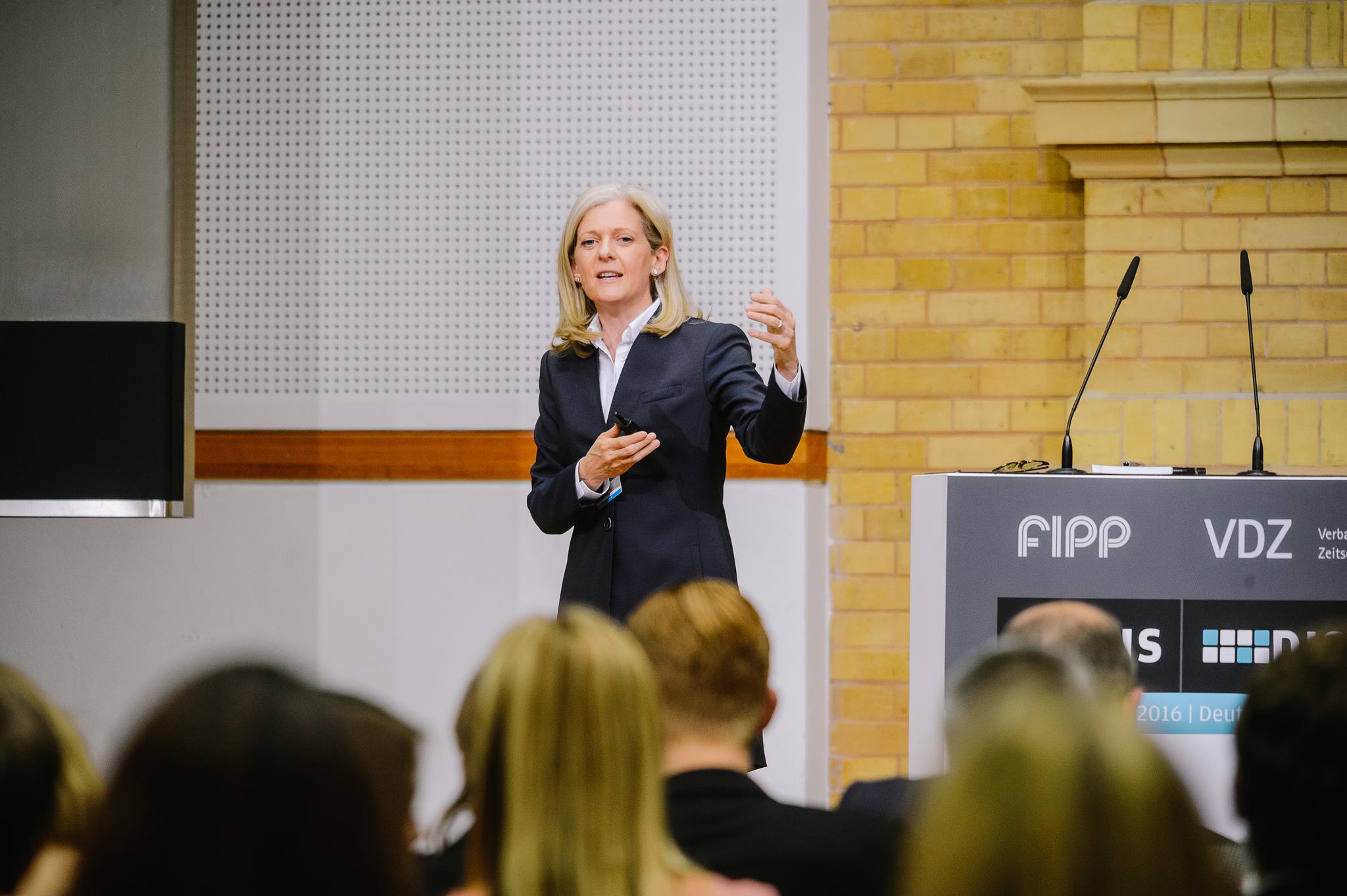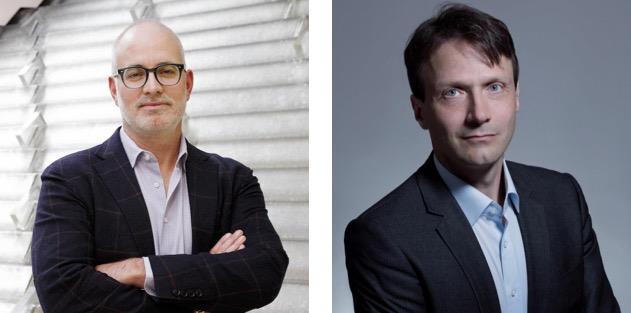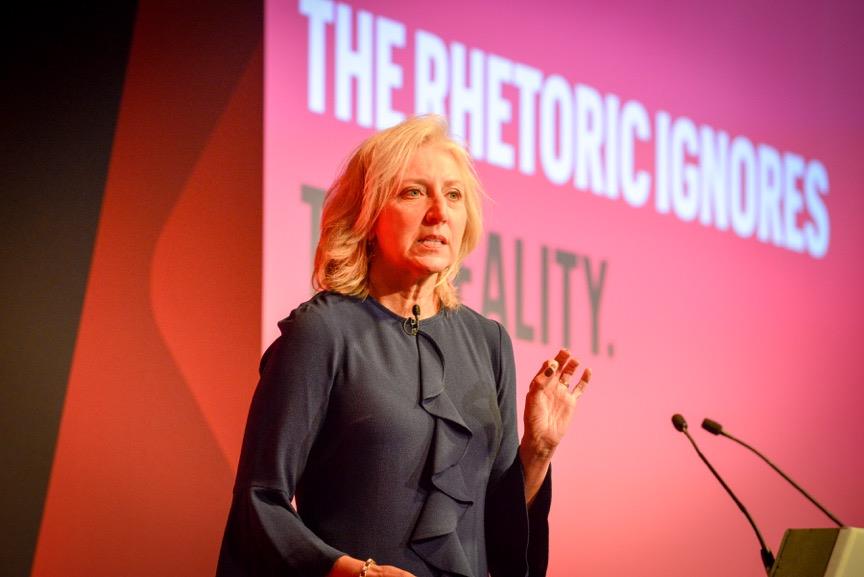When chief digital officers join the highest echelons of legacy publishing.
FIPP INSIGHT, SEPT 4, 2018. There were only a handful of digital officers around in legacy publishing two decades ago. Today, they are climbing to the highest echelons of publishing, and more recently digital officers have ascended to C-suite status with the creation of the title chief digital officer (CDO). Even more recently we have seen Troy Young, CDO at Hearst Magazines International take over as president of the entire business. Similarly, Wolfgang Blau, CDO at Condé Nast International, took over as president of CNI in August of last year. At the time the move was described by the company as an attempt to bring “digital authority” to the organisation’s leadership.
Essentially, says Prof. Dr. Lucy Küng, Google Digital News Senior Research Fellow, Reuters Institute, Oxford University, the rise of C-level digital roles reflects the ascendency of technology in the media overall. “This has been the big story of the past two decades. Strong digital media performers are tech companies as much as they are content creators.”
 |
Prof. Dr. Lucy Küng
She references BuzzFeed and Netflix, which are both huge data analytics engines plugged into content creation systems. “The rise of tech means that tech and data have shifted from the plumbing (necessary to get the core job done but essentially a support system) to being absolutely central to the ability to create content, disseminate that content and connect with audiences, and to extract value from that content. Thus we are seeing the rise of CDOs.”
Her view is supported by Peter A. Kreisky, chairman of The Kreisky Media Consultancy. He has maintained for many years “that the digital revolution will only become real and relevant when its leaders move from the perimeter to the center.”
 |
Peter A. Kreisky
He explains: “This is the moment when the sanctioned disruptor turns and becomes the new soul of the organisation… the fact that we now have CDOs becoming CEOs shows that it may truly be here. In that future, digital is no longer an add-on or an afterthought – but the driver of every activity.”
 |
Troy Young (left), CDO at Hearst Magazines International takes over as president of the entire business. Similarly, Wolfgang Blau (right), CDO at Condé Nast International, took over as president of CNI in August of last year.
Digital confidence
But, warns Linda Thomas Brooks, CEO and president at Magazine Publishers of America, a valued leader is not defined by one particular skill set or authority, rather a successful executive has a variety of expertise. “When it comes to magazine media, that means knowing all the media channels that affect magazine brands, not just one. Most companies in our industry are rich with talent from all aspects of the business and have the ability to choose from a range of high-caliber leaders when management changes occur. In the recent examples of chief digital officers taking on top spots, they not only have a broad personal skill set, they also have a stable of very talented experts alongside them.”
 |
Linda Thomas Brooks
Writer, editor and founder of Flipping Pages Media, Peter Houston, agrees. He says the term ‘digital authority’ that’s being bantered about might not be the right term. “Maybe ‘digital confidence’ is better. It’s really about having leaders that are not afraid of digital, not afraid to embrace new technologies, but also not afraid to admit when they need help making it fit with legacy operations.
Bo Sacks, president and publisher at Precision Media Group, and veteran media commentator, is not as enthusiastic. He says now that some of the rules in publishing have changed “the most fluent digital literati are becoming leaders”. But there is a flaw in this. “Being the best in any subset of your field doesn’t mean you are a good leader. In many cases the “Peter Principal” plays out, where people are promoted to their level of incompetence. I suggest that ‘digital authority’ (being promoted to directorships), is a passing fad soon to be replaced by those that understand that digital data just means information. Those that can comprehend the information they possess by the very nature of understanding it, will have all the authority they need for themselves and their companies to succeed.”
 |
Bo Sacks
Will the CDO rule the boardroom forever?
No, argues Küng. “This is at best an interim stage. In future, all leaders will need to ‘get digital’, whatever their domain specialism (content, commerce, tech, HR) because at a higher level, leaders will not be able to guarantee a sustainable future for the organisations they are tasked to lead. To that extent I suspect the epithet ‘digital’ will disappear from job titles relatively soon, as all will be intrinsically digital. Conversely, we may see titles emerging that specify focus on legacy or classic products (chief content officer, legacy products specialist).
Corporate word salad
Houston agrees. “As more publishing businesses truly make the transition to digital, then maybe the digital aspect of job titles will disappear. We’ll get back to being publishers, not digital publishers or print publishers, just publishers.”
 |
Peter Houston
Even in the interim the rise of digital leaders is something Sacks hopes we will soon see the end of. “In my book there is no such thing as digital authority. It is corporate word salad for the now different technical backgrounds needed for leadership and job functionality.”
He warns that successful publishing is all about passion. “The passion of readers willing to pay for the special information the publisher possesses. If the industry is led solely by digital warriors, we might miss the humanity of our businesses. Our readers are more than a set of digits. They are people with needs. What we as publishers own is usually the answer to the reader’s questions. It’s fine to digitise much of the process but let’s not forget the most successful publishing platforms are about addictive content and that still comes from editors and writers who understand the pulse of the niche they find themselves in. Data will only take you so far.”
Friction in times of change
But even if this is a passing phase, does the CDO bring a skill set to management that could iron out the frictions being experienced between new tech and legacy systems, some of which are deeply rooted in corporate cultures?
Houston says friction in times of change is unavoidable and while the CDO might have a role to play, it will depend on the business, where it is in its transformation and where it aspires to be. “The only real way to overcome friction is to set aside the agendas of the technology group and of the legacy group and focus on the needs of the audience. If changes don’t ultimately serve the long-term needs of the audience, and that includes commercial sustainability, then prospects for the business are probably not great.
“If it’s early (in the transformation process) then the CDO probably needs to be very thick skinned, patient and diplomatic to keep explaining the benefits transformation can bring (and the catastrophe that waits for companies that don’t change). If it’s late in the transformation then they need to be more of a visionary, an innovator, and also a good listener to be able to take ideas from the shop floor. More generally, they need to be super curious about new technologies and platforms.”
Regardless of which channel a C-suite officer came up through, being able to lead a transformation is a challenging proposition, says Thomas Brooks. “It takes creativity, perseverance, the ability to motivate staff and the capacity to understand what consumers want and are willing to pay for. The magazine media industry is famous for having rich customer data.
“A successful leader appreciates that there are real people behind that data and will continue to deliver the products and services – across channels and formats – that meet and anticipate the demands. In many cases, the print product is the foundation of the consumer relationship with the brand. These executives are great at thinking of ways to extend and support consumers’ love of that brand,” says Thomas Brooks.
|
CDO, CFO or Worker Bee?
|
Sacks feels there is too much being made of the so-called friction between digital and legacy systems. “There is little friction between new technology and legacy systems and therefore there is no need for any special kind of leadership. Reading is not a legacy system. Reading is an indispensable part of our future. We may have new technologies, new substrates and faster distribution, but reading is essential for it all. Our business has always been about getting the right words and thoughts to a paying public. All else are just details to the mission at hand.”
For this reason leadership is not confined to any single skill set, continues Sacks. “CDO, CFO or Worker Bee – all have leadership potentials that have little to do with vertical professional experiences. To me true leadership is about a complete understanding of the process and the mission and a vision of how to accomplish it. The path of being a leader has always been the essential ability to motivate your team to do things they thought they couldn’t. The best leaders are those that motivate the people around them to do great things and that skill-set can come from anywhere in the corporate ladder.”

